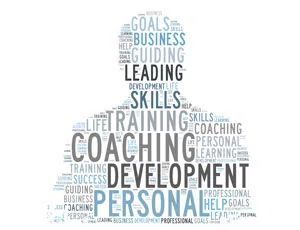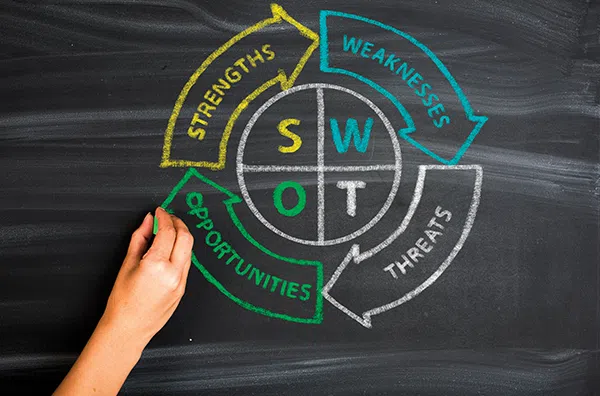Stay ahead of the game with a strategic partner you can trust.
Change is inevitable. Your technologies are changing. Your employees are changing. Your customers are changing. Understanding this changing environment boils down to understanding the new tools, products, services, techniques and more to ensure that you are providing the best products and services possible.
Making the time to stay informed and trained can be difficult. But the only way to effectively adapt to change and keep up with your customers and competition is by prioritizing training and learning in your own organization.
Like most HVACR companies, you are strapped for the time and resources to invest in training. You want your people working and producing income and not sitting in a classroom. And the experts that would be needed to teach the classes are your most valuable and overworked employees. As a result, training keeps getting pushed to the back burner.
So what can you do if you want an ongoing training program, but doing it all in-house is not practical? The answer is to find a strategic partner. One you can trust and is as committed to seeing you succeed as you are. A partner with the resources in people and course offerings, industry and technology knowledge and state-of-the-art training methodologies to ensure that your training investment will produce increased sales, happier employees and more satisfied customers.
For maximum results, you need to commit to an organized and comprehensive program. Your business can then decide exactly what training will be conducted in-house and what training will be taken on by individuals or companies outside of the organization. There are a few things to consider when a company is thinking about outsourcing your training and employee development. Let’s take a look at some of them.
Customer Improvement
First things first, your customers are your lifeline. Customers are always important, but customer retention is paramount for your continued success. But keeping a happy customer is easier said than done. So long as your technicians know what they are talking about and can effectively address your customers’ issues, you are ahead of the game, but it doesn’t stop there.
Your customers start judging your company as soon as one of your employees picks up the phone, so make sure your greeting is a positive one. Customers typically judge their service provider by multiple criteria, including friendliness, eagerness, appearance, the time it took to resolve their issue and the overall price/benefit ratio.
If these things are properly managed, customer retention is probably inevitable. But given the amount of work that must be delegated to accomplish any sort of progress in these areas, approaching this with an in-house training method can be difficult or even impossible. Your technicians and other key employees have to be convinced of the need to change their customer interactions and then have to learn and practice their new techniques.
Your training partner should have experience dealing with all types of customer service issues. In addition to the expected technical training, they should provide specialized training in the nuances of dealing with customers in difficult situations, such as when there has been an error or a misunderstanding, or a deadline or commitment has been missed, or a follow-up forgotten.
Your training partner should be able to deliver quality training for all of these issues and more. And their training should include role-play and other exercises to give your employees the opportunity to learn in simulated situations instead of on your customers’ doorsteps.
Employee Performance
So your customer relations are taken care of … what about your employees?
Most organizations realize the importance of providing the proper training and education for their employees. Employees who feel inadequate, underachieving, or unsupported are unhappy. They aren’t satisfied in their work, which can cause them to underperform, make mistakes and care little about their work product. When employees are well trained, they put more effort into their jobs, which leads to better results and improved customer satisfaction.
Employee retention is also just as important as it is for customers. Studies have shown that replacing HVACR employees can be very costly and financially detrimental to your company’s bottom line. It also takes a lot of time and energy away from other tasks when companies have to focus on hiring new talent. You would never hire an unqualified employee. But sometimes employees can become under-qualified due to changing technology or the development of new tools and techniques.
Your employees are a critical part of what makes your business thrive, but your management team and supervisors are usually busy handling the daily operations of the business and don’t have the time to train.
Your strategic training partner can relieve you of this burden and give you the freedom to focus solely on developing your products and bringing them to market. Your training partner should offer courses that give your employees the opportunity to keep up with the changes in the industry and feel more confident in their abilities. And when employees feel they are worthy of your investment, they generally act like it.
Gaining Unique Perspectives
Keeping everything in-house does help to maintain a consistent work environment. But it’s important to stay open to fresh ideas and new viewpoints. Just because you have always done things a certain way, doesn’t necessarily mean it’s the most efficient way to get things done.
Whether it’s sales training, technical training, customer service, or your business and management practices, you and your employees can benefit from learning the latest tools, techniques and methodologies.
Your training partner should be able to present you with a variety of courses and training options in all of these important functional areas. The company you hire to carry out your training needs will have individuals on staff with the advanced knowledge and expertise to train your employees to be better salespeople, better technicians, better customer service people and better managers and supervisors.
Pick a training partner that knows your business and your industry. Your training partner should know HVACR and thoroughly understand its technologies and products. The right training partner can give you the opportunity to maximize on different areas of knowledge and expertise that your business might not otherwise be exposed to.
Improving Quality of Service
Training in different environments under trainers with new perspectives can also affect the quality of service your employees or technicians present. Learning new concepts and how to apply new technologies, tools and methods helps employees perfect their craft.
In HVACR terms, this means better installations, more comprehensive service and more thorough maintenance, which result in a more successful business.
When you are working with training professionals who are themselves experts in their specialized field, your employees will benefit from information that is more up-to-date and detail-oriented, allowing them to focus on more specific tasks.
As a result, your people can learn to spot potential problems faster and develop more comprehensive solutions than before. Your training partner should have trainers who are experts in all the areas that are critical to your success and provide different ways of delivering their expertise to your employees.
Expertise & Experience
The truth is many training experts specialize in training — while you and your company specialize in HVACR products. The two are different, yet both very important. It is both cost-effective and most productive to outsource the training you need to the experts in both training and HVACR. The most cost effective training partner will offer the best of both.
Cost Efficiency & Innovative Programs
Outsourcing your training programs is generally cheaper than hosting the same services in-house. On average, businesses will spend 20 to 35 percent less when they decide to use outside vendors. This is because when companies try to house the training on the inside, they tend to separate their programs into small units or regions.
This approach becomes costly and is not as efficient as the extensive and focused approach that training programs can provide across multiple business groups.
When your business can have better control over the cost of training expenses, leadership teams can work with the outside training organizations to develop comprehensive plans and establish a budget that fits with the company’s mission, vision and objectives.
Your strategic training partner should offer a wide variety of relevant business, sales, technical and technology offerings and have the size and capability to deliver these courses on-site, off-site, or over the Internet.
Preparing for the Future
Outside training should always be designed to help your business improve their professional results. The training should occur after a comprehensive analysis of the business has been performed. A complete and thorough analysis will ensure that your business gets the most out of the program.
But if you’re like any other growing business, you’re also looking to prepare for the future. We’re living in a digital age.
Technology is changing fast and so is the way we do things. The HVACR trade is an established and well-developed industry, with the average technician age to be 57. But new talent is on the market. Young people are now entering the workforce with a very different understanding about how to survive in an industry like this.
This generational rift can create knowledge gaps where there were none before. It’s important to bridge these knowledge gaps with new technologies and strategies. There are plenty of benefits that outside consulting can provide that may help your company better plan for situations like this. Your training partner should understand this problem and have proven solutions to deal with it.
If you’re running a successful business it’s easy to feel like you can do it all. But some tasks are better left to the experts. Businesses should always delegate ample time to improving their product and serving their customers. This leaves little time for adequate training on the inside.
And if your company’s professional growth and development are top priority, your future self will thank you. When in doubt, outsource, but pick a training provider with your long-term in mind: a training partnership for your future success.




